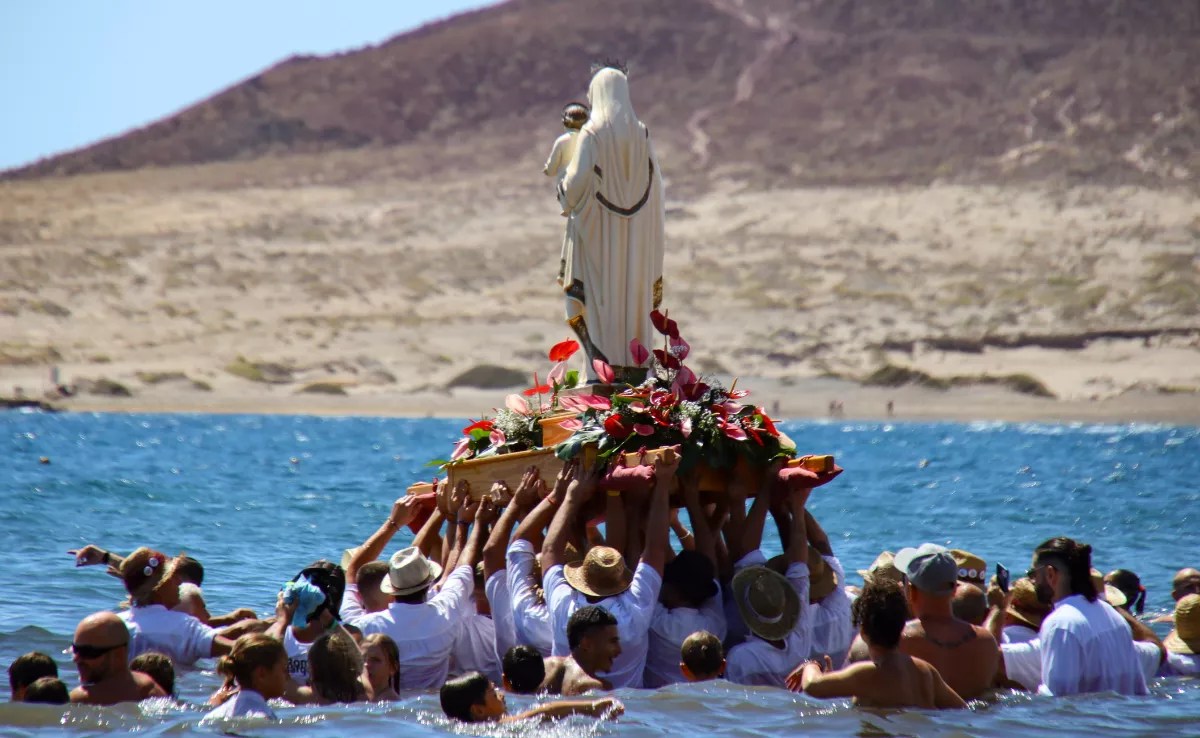Following several years in isolation, the Canary Coalition (CC) governing body received backing from the Popular Party (PP) yesterday to sanction the budget for the upcoming year, which is set at 52.6 million euros, although expectations suggest it could reach 60 million. This information was conveyed by the Councillor for the Treasury, Felipe David Benítez, after he outlined the primary objectives previously announced at a press conference last week.
This budget is described as a “continuing”, “prudent” financial document that considers the expenditure forecasts from the last three years, and includes a “historical” allocation for Social Welfare, emphasising that “the priority is people before paving a street,” the mayor stated.
Despite initial criticisms regarding the insufficient time to review the accounts — which do not cater to the necessities of the Villa’s residents — the PP decided to “extend a vote of confidence” to the governing body and offered their support. The nationalists had a similar stance, submitting amendments that requested greater allocations for infrastructure, sports, the primary sector, alongside a dedicated fund for ALS patients.
Nonetheless, CC was unable to secure the endorsement of the PSOE, the principal opposition group, or the Portuense Citizen Assembly. Both factions concurred that the budget is a “continuation” that merely “patches” existing issues and fails to address the most pressing challenges facing the municipality, such as housing and traffic issues. “La Orotava, we fear, will be late to tackle future issues,” remarked the socialist spokesperson, María Jesús Alonso.
During his address, he reviewed the income and expenses and recalled significant projects that remain “overlooked.” He specifically mentioned zone 7 of San Agustín; the prospective development of the Atlante theatre site, which was “announced with much fanfare prior to elections”; the renovation of Teobaldo Power; the ring road; and the Urban Mobility Plan. Additionally, he deemed the allocations for agriculture, commerce, and tourism as insufficient, “which collectively totalled 500,000 euros.”
The criticisms voiced by the two councillors from the Assembly, Aida Salazar and Manuel Pacheco, echoed similar concerns. The latter condemned the dilapidated condition of playgrounds and the “waste” of 25 million euros on the Teobaldo Power redevelopment. In connection to this, he suggested that only 12 million should be earmarked for that project, while advocating that the remaining funds should be redirected towards housing, opposing the construction of a new social housing complex at the entrance to El Bebedero. “You couldn’t be more inconsistent given the number of vacant properties in the municipality,” he remarked.
His colleague reminded everyone that the municipal housing plan was ratified two years ago. “Has an assessment been carried out to identify which area has the highest demand?” he queried. He also highlighted that the most significant issue at present “is that there are families unable to afford rent because they are struggling to make ends meet, which needs to be addressed.”
Felipe David Benítez addressed each criticism and reproached the PSOE for not having submitted “a single amendment” or specific proposals, unlike the Assembly. He defended the outsourcing of services, the effective management of home assistance, and underscored the support received from other administrations, particularly the Tenerife Cabildo, which enabled the execution of essential projects like the shared taxi service.
PP Backs CC and Greenlights 2025 Financial Statements
0
3
SHARES
No Result
View All Result
Latest Blog Articles
No Result
View All Result
News Highlights
Trending News
Podemos Calls for Suspension of La Laguna-Tenerife-Bnei Herzliya Basketball Champions League Match
La secretaria general de Podemos en Canarias, Noemí Santana - PODEMOS Follow the latest live news on...














